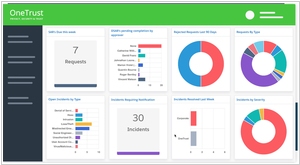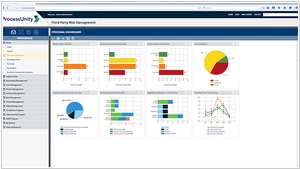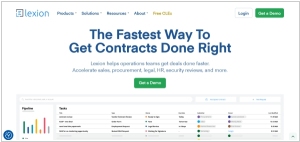OneTrust vs ProcessUnity
January 08, 2024 | Author: Michael Stromann
16

Trust Intelligence Platform makes it easier to build and demonstrate trust, measure and manage risk, and go beyond compliance. With OneTrust, you can inventory and connect your entire IT ecosystem, measure and monitor risk, and inform decisions to improve security posture and streamline compliance.
4

ProcessUnity enables the CISO to prove cyber readiness with a single platform to monitor cyber risks, improve mitigating controls and prioritize program activities. Powered by automation, the platform is purpose-built to create a defensible cybersecurity risk management program that bolsters the organization’s resilience.
OneTrust and ProcessUnity are both reputable platforms in the governance, risk management, and compliance (GRC) space, yet they exhibit key differences in their functionalities and target areas. OneTrust is prominently recognized for its focus on privacy management and compliance, offering a suite of tools tailored to assist organizations in navigating the complex landscape of data protection regulations such as GDPR and CCPA. It specializes in consent management, data governance, and other privacy-related functions. In contrast, ProcessUnity is renowned for its broader Vendor Risk Management (VRM) capabilities, concentrating on managing third-party risks and ensuring vendor compliance across industries.
A significant distinction lies in the primary use cases of each platform. OneTrust, with its emphasis on privacy, is often chosen by organizations looking for specialized solutions to address the challenges of data protection and privacy regulations. It caters to the growing need for comprehensive tools that help companies handle personal data responsibly. ProcessUnity, on the other hand, is particularly well-suited for organizations with a heavy reliance on third-party relationships, providing tools to assess, monitor, and mitigate risks associated with vendors and suppliers.
Integration capabilities further set OneTrust and ProcessUnity apart. OneTrust has built a robust ecosystem of integrations, especially with tools related to data governance and privacy management. ProcessUnity, focusing on third-party risk management, integrates with a variety of vendor management systems and other GRC tools. Organizations should carefully evaluate their specific needs, whether centered around privacy compliance or vendor risk management, to determine which platform aligns better with their overall GRC objectives and existing technology stack.
See also: Top 10 IT Risk Management software
A significant distinction lies in the primary use cases of each platform. OneTrust, with its emphasis on privacy, is often chosen by organizations looking for specialized solutions to address the challenges of data protection and privacy regulations. It caters to the growing need for comprehensive tools that help companies handle personal data responsibly. ProcessUnity, on the other hand, is particularly well-suited for organizations with a heavy reliance on third-party relationships, providing tools to assess, monitor, and mitigate risks associated with vendors and suppliers.
Integration capabilities further set OneTrust and ProcessUnity apart. OneTrust has built a robust ecosystem of integrations, especially with tools related to data governance and privacy management. ProcessUnity, focusing on third-party risk management, integrates with a variety of vendor management systems and other GRC tools. Organizations should carefully evaluate their specific needs, whether centered around privacy compliance or vendor risk management, to determine which platform aligns better with their overall GRC objectives and existing technology stack.
See also: Top 10 IT Risk Management software


